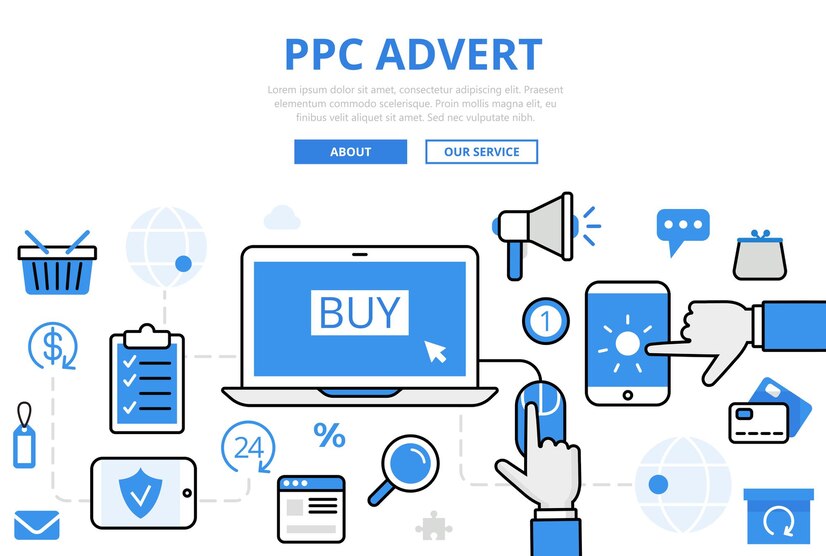Everything You Need To Know About Working With A White Label PPC Partner
5 Mins Read
Published on: 12 January 2023
Last Updated on: 14 October 2024

toc impalement
Would you like to expand your digital marketing agency without spending thousands on people, equipment, and training? If you answer yes, then you’re ready for white-label services.
This article ventures into a highly profitable outsourcing model. To be specific, it covers what a white label PPC partner is, how the system works, and the best tips to make it fruitful for you.
What Is A White-Label Service?
According to Digital Authority Partners (DAP), a white label service is a type of business outsourcing where a company provides services, such as pay-per-click (PPC), to another. But the latter rebrands it as its own and adds a markup to earn a profit.
A white label is not
- a reseller model, where you sell someone else’s products or services as is,
- an affiliate marketing scheme, where you get a commission for promoting someone else’s product or services.
How Does White Label Ppc Work?
White label PPC follows a simple process.
- Your agency outsources the management of your clients’ accounts to another firm.
- The provider then manages the account as if it were its own, adding its branding to reports, proposals, and invoices. It then charges you accordingly.
- Your company then bills the client at an agreed-upon rate, usually with a markup.
The agency and the white-label PPC partner typically have a contract that stipulates the terms of service, including the duration, account management fee, and other conditions.
The agreement should also state who owns the data and intellectual property of the campaign. If it is not specified, the agency should assume that it owns the information and can use it for other clients.
That’s the simple explanation of the process. But many factors can impact the overall look and feel of the partnership. These include:
- Services Offered: A white label provider extends various services to you and your clients. The most popular for businesses is PPC. Others specialize in search engine optimization (SEO), social media marketing (SMM), content marketing, and email marketing. An agency may offer some or all of these depending on its size.
- Cost Structure: A white-label provider usually bills you a flat monthly fee. But sometimes it charges you based on the number of services you use or clients you have. The cost also varies depending on the size of the company. If it’s a one-man show, then the rate is lower than an established agency with more overheads.
- Degree of Control: The partnership type between your agency and the provider also matters. A true white label is when the provider gives you complete control over`the service. This way, you can customize it according to your brand and clientele.
The Benefits Of Working With A White Label PPC Partner
Working with a white-label PPC partner has many advantages, including the following:
- Increased Efficiency: With someone else managing your clients’ accounts, you can free up your team to focus on other areas of the business, such as sales and new business development.
- Better Quality: If you partner with a reputable PPC provider, then you can be sure that your clients will receive high-quality services. Also, the firm’s expert staff can train your team on the latest digital marketing trends and techniques.
- Improved Cash Flow: White label services are typically a pay-as-you-go arrangement. You pay for the actual work done. There’s no need to worry about long-term contracts or upfront costs.
- Scalability: With white label PPC, you can quickly scale up or down according to your needs. You’re not tied to a particular team or physical office space. This benefit is particularly useful for agencies growing their PPC business. They can start small and then gradually increase the number of clients and services as they go along.
- Another Income Stream: PPC is a massive advertising industry that could achieve a compound annual growth rate (CAGR) of at least 10% from 2021 to 2030. By partnering with a white-label PPC provider, you can quickly tap into this growing market.
5 White Label PPC Tips For Businesses

If you’re planning to outsource your PPC management to a white label partner, then keep the following tips in mind:
1. Do Your Research
Not all white label providers are created equal. Some may be more expensive than others. Others may offer more services or have better quality control.
To find the right provider, start by creating a list of potential firms. Then, narrow down your options by checking their website, reading online reviews, and talking to their past clients.
Look for those with certifications, such as Google Ads and Bing Ads, and those that use the latest tools and software.
You can also ask for referrals from other agencies or businesses. They may have worked with a white label PPC provider in the past and can recommend one to you.
2. Consider The Quality Of Services
Quality should be one of your main concerns when outsourcing your PPC management. After all, you’re entrusting your clients’ accounts to someone else.
To ensure that you’re getting high-quality services, consider factors such as the provider’s experience, reputation, and processes. Also, don’t forget to ask for references or case studies that you can review.
3. Pay Attention To The Contract Terms
Be sure to carefully review the fine print before signing anything. You don’t want to be locked into a long-term contract that’s not working out.
Understand the billing arrangement as well. Some white-label providers charge a flat monthly fee, while others bill you based on the number of services used or clients served. Choose the pricing structure that best suits your needs.
Finally, make sure there’s a clause that allows you to cancel the contract if you’re not satisfied with the service. This way, you can walk away without any financial penalties.
4. Set And Communicate Your Expectations
Before work begins, set clear expectations with your white label partner. How involved will you be? What level of service can your clients expect? What are the turnaround times for deliverables?
Be sure to communicate these expectations to your partner in writing to prevent confusion and miscommunication later on. You can include them in the contract or create a separate document.
It’s also a good idea to provide your partner with a list of your clients’ goals and objectives. They can tailor their services to meet your clients’ specific needs.
5. Monitor The Results
Once the work is underway, monitor the results to ensure the provider is meeting your expectations.
Track the key performance indicators (KPIs) that you’ve agreed upon, such as click-through rates (CTRs), conversion rates, and cost per acquisition (CPA). If you see any red flags, such as a sudden drop in performance, raise them with your partner right away.
Regularly communicate with your clients to get their feedback on the services they’re receiving. If they’re not happy, you may need to make some changes or find a new white label partner.
Summing Up
A white label provider can be a valuable asset for your business. It can help you save time and money while also allowing you to tap into new markets.
But you need to find the right provider. Do your research, compare your options, and don’t hesitate to walk away if the contract isn’t right for you.
In the end, the success of your white-label relationship depends on clear communication and setting the right expectations from the start.
Read Also:


















Comments Are Closed For This Article